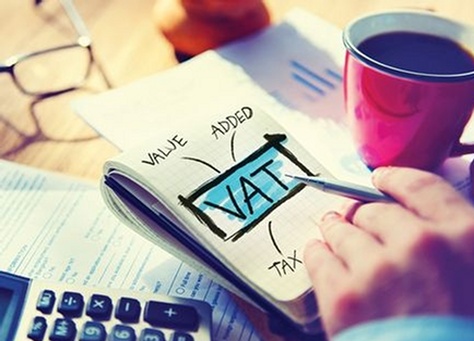Reverse Charge Mechanism on Electronic Devices in the United Arab Emirates
- November 27, 2023
- Posted by: GITPAC
- Categories: Startups, TAX, UAE, UAE Corporate Tax, UAE FEDERAL TAX AUTHORITY

Federal Tax Authority Issues Public Clarification on implementing Reverse Charge Mechanism on electronic devices among registrants in the UAE
In a move that promises to reshape the Value Added Tax (VAT) landscape, the Federal Tax Authority (FTA) is set to implement a significant decision come October 30, 2023. The introduction of the Reverse Charge Mechanism (RCM) for electronic devices is poised to bring about a paradigm shift in VAT accountability among registrants. This article serves as your comprehensive guide to understanding and navigating the implications of this groundbreaking development.
The Reverse Charge Mechanism Unveiled
The Reverse Charge Mechanism, a bold initiative by the FTA, is designed to streamline the VAT process for electronic devices. Starting October 30, 2023, the responsibility for VAT on supplies of electronic devices will shift from the registered supplier to the registered recipient, specifically when these devices are intended for resale or use in the manufacturing of electronic goods.
Devices Under the Spotlight
To gain clarity on the scope of this decision, the FTA has issued a recent clarification. The ruling encompasses a broad spectrum of electronic devices, including mobile phones, smart phones, computer devices, tablets, and their corresponding components. It’s essential to note that the decision exclusively applies to wireless devices, excluding those connected through physical means like wires or fiber optic cables.
The Cabinet Decision extends its coverage to various computing devices, servers, and even computerized engine control units designed for automobiles. Additionally, the decision includes tablets, defined by their wireless, portable nature with touchscreen interfaces, combining the functionalities of both smartphones and computers.
Decoding Compliance Guidelines
For businesses seeking clarity on compliance, the FTA has released a detailed clarification document available on their official website. This document outlines that the RCM will not apply if electronic devices are not intended for resale or manufacturing. In practical terms, if smartphones are procured for internal professional use by employees and not with the intent to resell, the RCM does not come into play.
Understanding “Resell” and Production
The clarification also provides insights into the definition of “resell,” emphasizing its role as an integral part of the recipient’s business activity, covering both wholesale and retail transactions. Conversely, if a recipient acquires electronic devices for internal use or operational purposes without the intent to resell, the RCM is not triggered.
The decision spans both partial and complete production or manufacturing of electronic devices. For instance, if a registered recipient acquires electronic device components for assembly into another part owned by a third party, the RCM is applicable, as these parts are acquired with the intention of the production or manufacturing of electronic devices.
Embracing Change for Future Success
As with any transformative tax amendment, embracing change and ensuring compliance will be crucial for businesses in the electronic device sector. The FTA’s introduction of the Reverse Charge Mechanism marks a significant milestone in VAT procedures, and navigating these changes with precision will be key to future success.
Conclusion
In conclusion, the FTA’s implementation of the Reverse Charge Mechanism for electronic devices is a bold step towards efficiency and transparency in the VAT system. Stay informed, adhere to compliance guidelines, and prepare for a smoother transition into this new era of taxation.
For further details and the complete compliance guidelines, we encourage you to visit the FTA’s official website.
